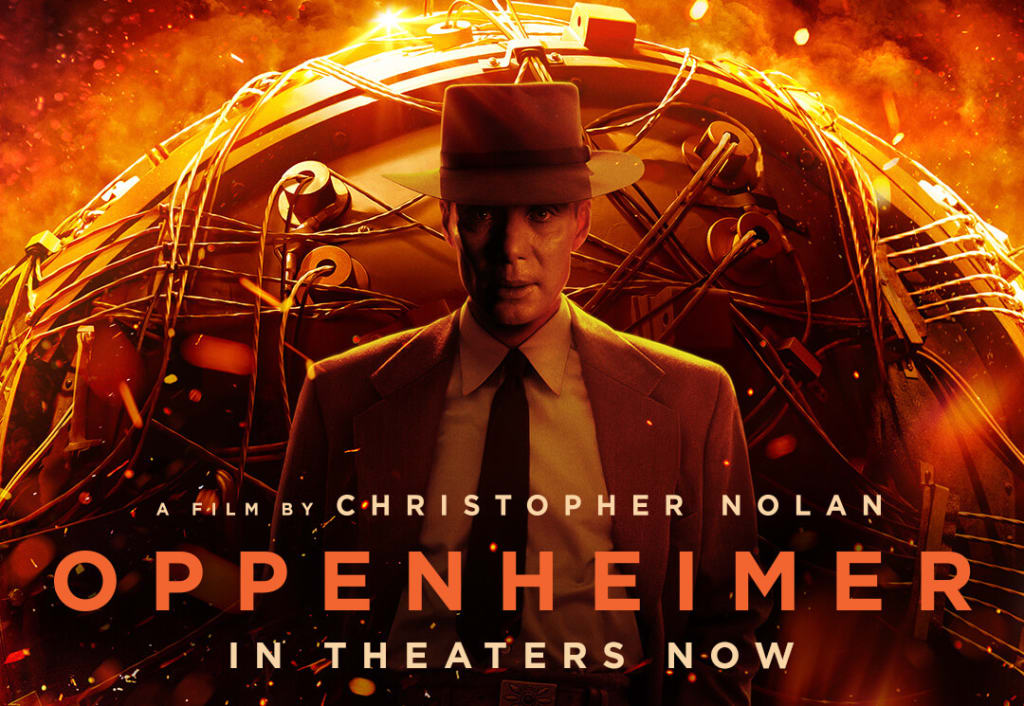A Labyrinthine Dive into the Human Psyche: A Critical Review of "Oppenheimer"
A Critical Review of "Oppenheimer"

"Oppenheimer," the latest cinematic offering from acclaimed director Christopher Nolan, is a film that boldly ventures into the realms of science, morality, and the human psyche. With its meticulously crafted narrative and stunning visual effects, the film has all the hallmarks of a Nolan masterpiece. However, beneath the surface lies a complex and, at times, bewildering exploration that challenges the audience's patience and comprehension.
The film centers around the life and work of J. Robert Oppenheimer, the brilliant physicist who played a pivotal role in the development of the atomic bomb during World War II. Cillian Murphy, in the role of Oppenheimer, delivers a performance that is both compelling and enigmatic. His portrayal captures the inner turmoil of a man whose groundbreaking scientific achievements were inextricably linked to the devastation they caused. However, the film's relentless focus on Oppenheimer's internal struggle sometimes veers into self-indulgence, leaving the audience craving a more comprehensive examination of the broader historical context.
Nolan's penchant for nonlinear storytelling is in full display in "Oppenheimer." While this approach has been a hallmark of his previous works, it reaches new heights here, sometimes at the expense of narrative clarity. The film constantly shifts between different time periods and locations, demanding the viewer's undivided attention. While this nonlinear approach serves to mimic the fragmented nature of Oppenheimer's memories and emotions, it also frequently leaves the audience feeling disoriented and disconnected from the story.
The visual spectacle of "Oppenheimer" is nothing short of breathtaking. Hoyte van Hoytema's cinematography and Nathan Crowley's production design create a vivid and haunting world. The scenes depicting the Manhattan Project's secret laboratories and the awe-inspiring detonation of the first atomic bomb are particularly remarkable. Hans Zimmer's score complements the film's visuals perfectly, adding emotional depth and tension to the narrative.
Where "Oppenheimer" truly shines is in its exploration of moral ambiguity. Nolan skillfully navigates the complex ethical dilemmas faced by Oppenheimer and his team, making it clear that science and innovation can be used for both good and evil. The film raises important questions about the responsibility of scientists and the consequences of their creations, and it invites viewers to reflect on the implications of scientific progress.
However, the film's ambition to address these profound themes is also one of its weaknesses. "Oppenheimer" often sacrifices clarity for the sake of philosophical depth. The complex scientific concepts and ethical dilemmas are presented in a way that can be alienating to the general audience. At times, it feels like the film is more interested in showcasing the director's intellect than in delivering a coherent and accessible narrative.
The supporting cast, including Emily Blunt, Robert Pattinson, and Kenneth Branagh, delivers solid performances, but their characters remain underdeveloped. They serve as mere conduits for Oppenheimer's internal turmoil rather than fully fleshed-out individuals with their own motivations and complexities.
The film's pacing is another source of frustration for the viewer. Clocking in at over three hours, "Oppenheimer" tests the audience's patience. While some may argue that the slow burn allows for a more profound exploration of the central character, it's difficult to ignore the instances where the film feels indulgent and could benefit from tighter editing.
"Oppenheimer" is a challenging cinematic experience that, like many of Nolan's films, demands multiple viewings to fully grasp its nuances. It's a cerebral journey into the mind of a brilliant yet morally conflicted scientist. While its artistic and thematic aspirations are commendable, they often overshadow the narrative's coherence and accessibility.
In conclusion, "Oppenheimer" is a visually stunning and thought-provoking film that delves into the moral quagmire of scientific progress. Cillian Murphy's performance is a standout, and the film's exploration of moral ambiguity is compelling. However, its nonlinear storytelling, intellectual density, and excessive runtime may alienate some viewers. "Oppenheimer" is a testament to Christopher Nolan's ambition and talent but falls short of being the masterpiece it aspires to be, leaving the audience with more questions than answers.
About the Creator
Olsa Konneget
Feminist. Mother. Wife. Friend. Mentor. Enthusiast. Advocate. Student. Optimist. A woman who believes in equality, the power of discourse, and the responsibility of good citizenship.






Comments
Olsa Konneget is not accepting comments at the moment
Want to show your support? Send them a one-off tip.